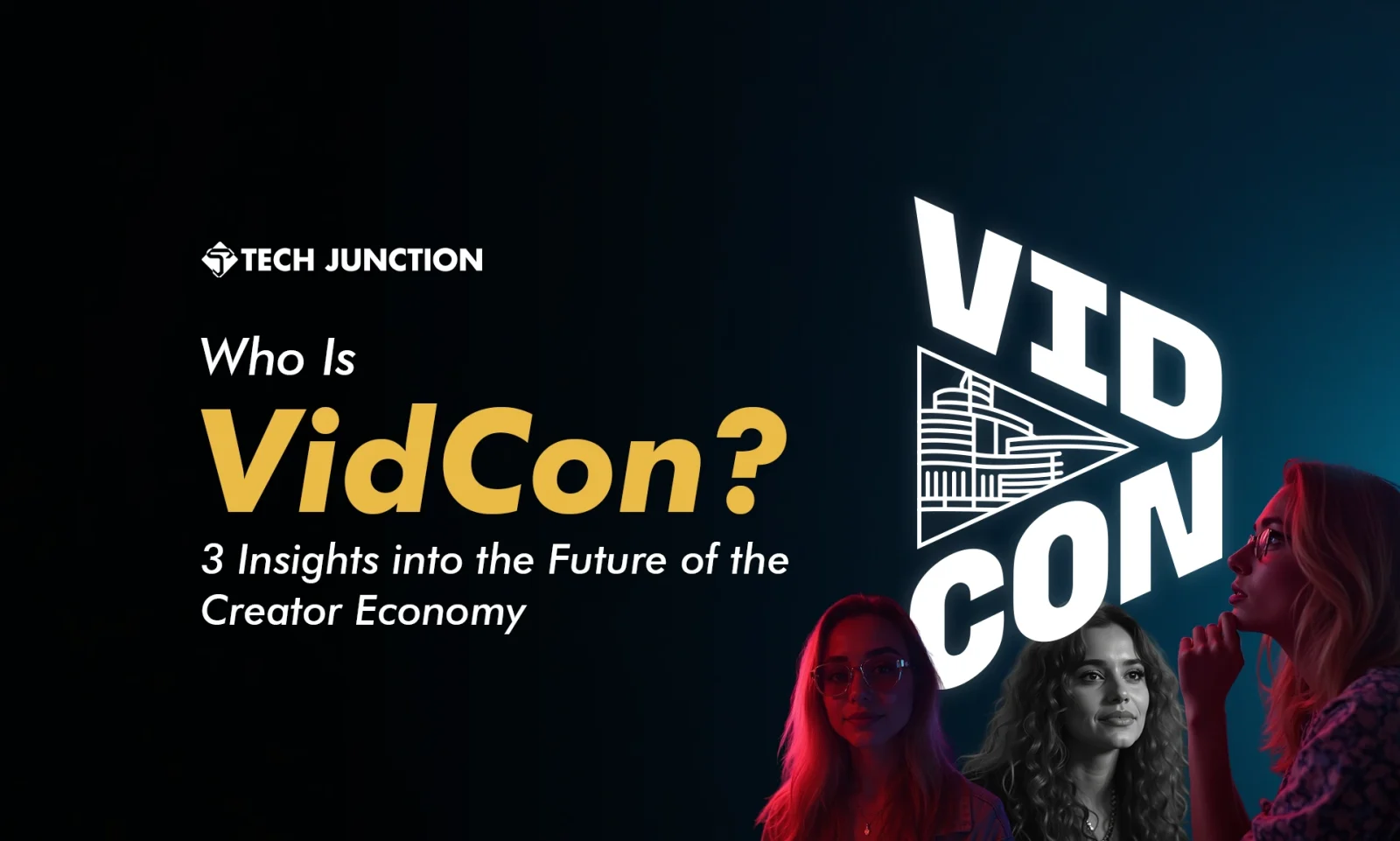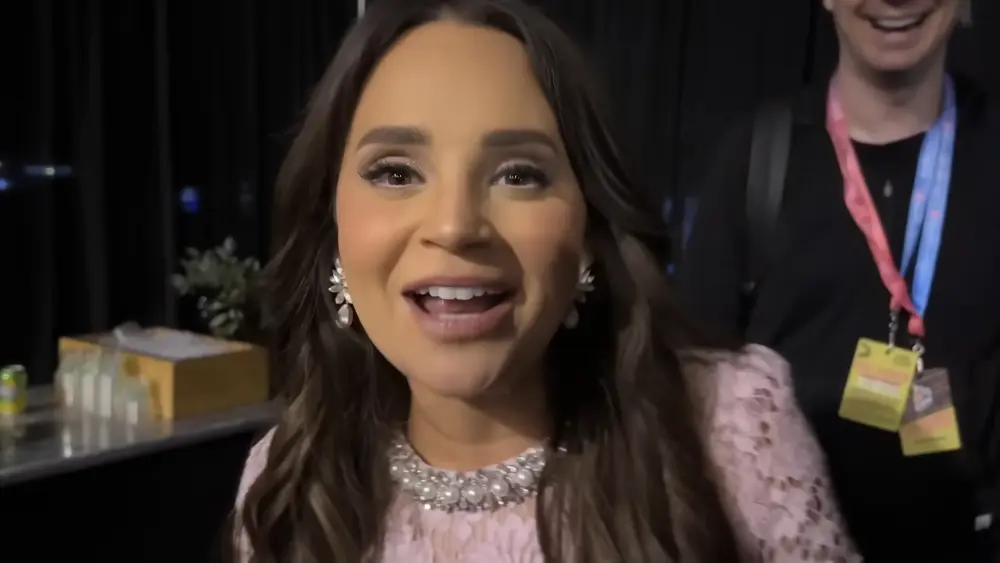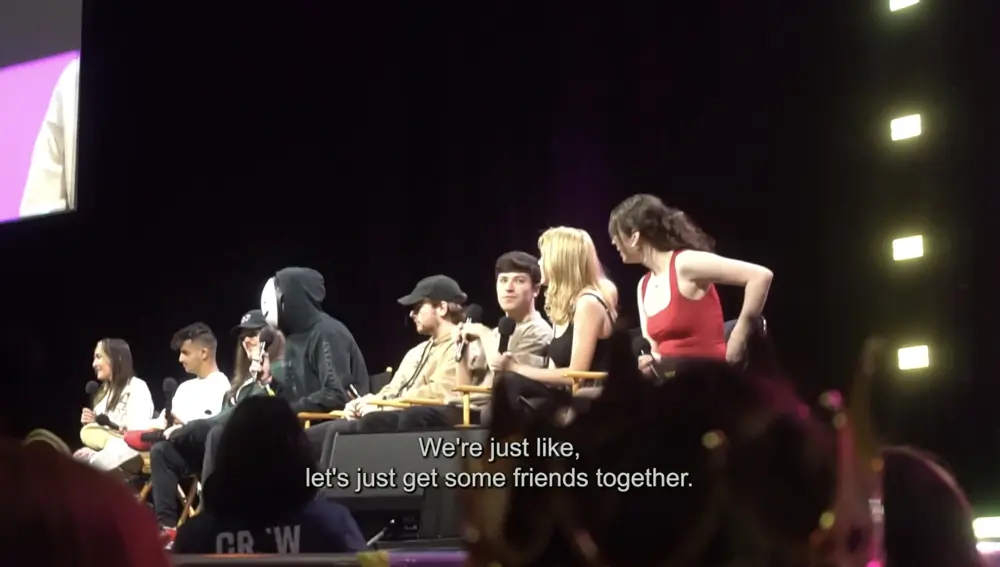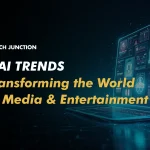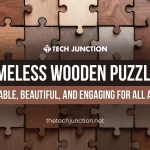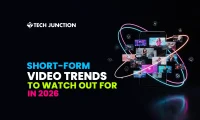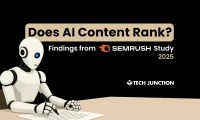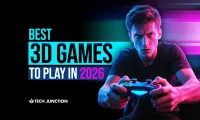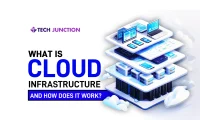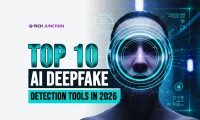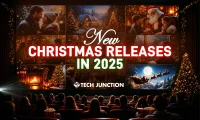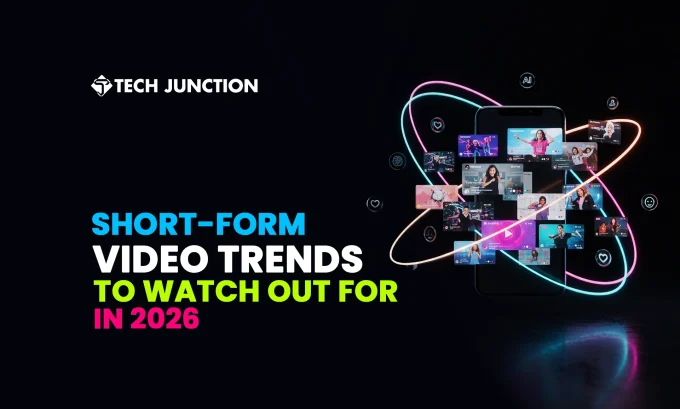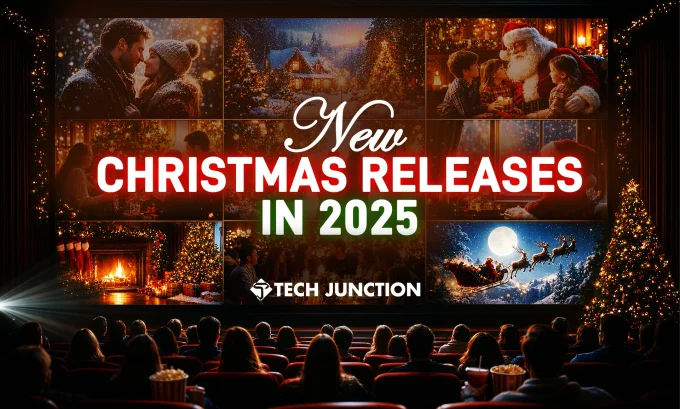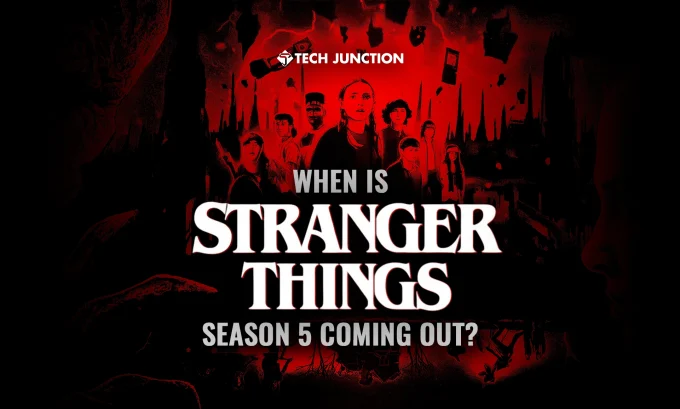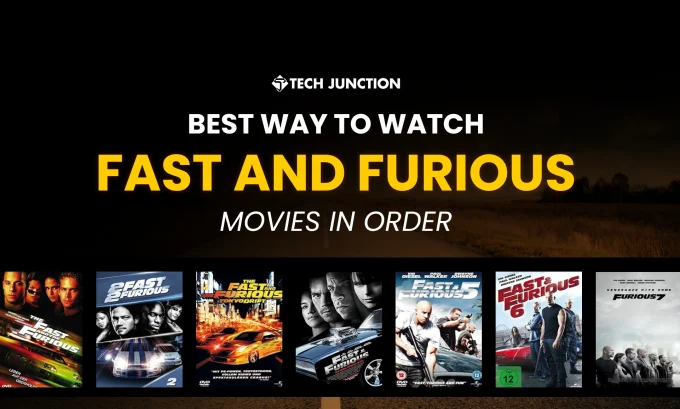Once upon a time, VidCon was chaos in its purest, most glorious form: hordes of screaming teens clutching Sharpies and waiting hours in cavernous halls to lock eyes with their favorite YouTubers. It smelled of hope, hormones, and overpriced churros.
Back then, creators roamed free, mingling with their fans like rock stars at an afterparty, and the air was thick with the heady promise that anyone with a camera and Wi-Fi could be next.
But that VidCon? It’s gone.
Walk into VidCon 2025 and you won’t hear the same deafening roar. The crowd is older, quieter, and decidedly more professional.
So who is VidCon really for now? The fans who built it? The creators who became CEOs?
Or the corporations who quietly turned it into a playground for deals and data? In a creator economy obsessed with growth, has the culture of connection been collateral damage?
What is VidCon and When Did It Start?
VidCon is essentially the Comic-Con of online video – a convention where digital culture takes center stage and “the world’s leading digital creators, platform innovators, and their fans converge in one place”. It began in 2010, when veteran YouTube brothers Hank and John Green (known as the Vlogbrothers) decided to host a gathering for YouTube’s community.
That first VidCon drew about 1,400 people to a Los Angeles hotel ballroom. Fast forward to today, and VidCon has exploded into a multi-day extravaganza at the Anaheim Convention Center, attracting tens of thousands. (For context, 75,000 attended in 2019, its last pre-pandemic peak.)
Over the years, VidCon expanded far beyond its YouTube roots. It now hosts influencers, fans, executives, and online brands from across platforms.
The convention features everything from meet-and-greets with famous creators to panels on the latest social media trends. It even spawned international spinoffs (from London to São Paulo) and an online arm called VidCon Now for virtual programming.
In short, VidCon has become the place where everyone in the content creation world – fans, creators, and industry – comes together.
Who Was VidCon Originally For?
In its early years, VidCon was unabashedly for the fans. The event saw throngs of teenagers lining up for hours to see their favorite YouTubers in person, screaming with joy at surprise vlogger sightings.
It was a fan-first festival where creators could meet their online communities “IRL” (in real life) – a chaotic, heartfelt celebration of internet culture. VidCon’s founders themselves described it as “a celebration of digital content creation” for all who love online video.
The event created distinct tracks to serve each group: a Community Track for fans (packed with Q&As, concerts, and photo ops), a Creator Track for up-and-coming creators to learn skills, and an Industry Track for brands and executives to talk business.
However, as VidCon matured alongside the creator economy, its purpose and audience have changed. That brings us to our first insight.
Insight 1: Has VidCon shifted from fan fest to industry expo?
Yes – VidCon has been steadily transitioning from a fan-centric meet-up into more of an industry-focused conference.
What used to be “the one place for fans to meet their favorite creators” now feels like a hybrid between a pop culture convention and a marketing trade show. The balance of power on the show floor is tipping: you’re now as likely to bump into a brand manager or talent agent as a wide-eyed fan in a merch T-shirt.
This year’s VidCon 2025 in Anaheim illustrated that shift clearly. Many attendees noticed “VidCon just doesn’t feel the same anymore”, as influencer industry veteran Reed Duchscher observed. Attendance has not fully rebounded to its pre-pandemic highs (around 50,000 in 2023 vs. 75,000 in 2019), and the crowd skewed older and more professional.
Walking the halls, you’d see clusters of creators and industry folk with All-Access badges, hustling between panel sessions on analytics and monetization. The once-common sight of ecstatic fans mobbing YouTubers in hotel lobbies was notably subdued – partly because today’s top creators often skip VidCon or handle fan meetups on their own terms.
Meanwhile, VidCon’s schedule itself is telling. The number of purely fan-oriented community events has stagnated, while Creator and Industry track sessions have grown ~15% year-over-year. In 2024 and 2025, there were entire panels on topics like “maximizing your CPM” and “the future of influencer marketing”.
These are discussions squarely aimed at creators-as-entrepreneurs and the brands courting them – content that would have seemed out of place at VidCon a decade ago. As one report put it, “education on the industry takes center stage” now, whereas VidCon was “once a hub for meet-and-greets with popular creators.”
Who is VidCon for now?
Increasingly, it serves creators and industry insiders – the YouTubers, TikTokers, and the companies that want to work with them. Fans are still welcome (and VidCon’s official messaging will always say it’s for everyone), but behind the scenes the priority has shifted to networking, education, and deal-making.
Key takeaway: VidCon’s center of gravity is moving from fandom to business. The future of the creator economy looks more professional, with creators not just as entertainers for fans but as entrepreneurs and partners for brands.
Insight 2: What do platform wars and trends at VidCon 2025 tell us about the creator economy’s future?
VidCon 2025 felt less like a fan free-for-all and more like a battleground for platforms jockeying for dominance. The old “YouTube = video” era is over. Today’s creators—and their audiences—are platform-agnostic, chasing reach across TikTok, Instagram, Twitch, podcasts, and beyond.
The YouTube vs. TikTok rivalry took center stage again. After TikTok briefly stole VidCon’s crown in 2022, YouTube muscled back as lead sponsor, dangling revenue-sharing for Shorts to lure creators.
TikTok countered with splashy lounges and parties, showcasing stars like Drew Afualo and SpookyBoo Myers. The message was clear: creators are no longer loyal to one platform, and each ecosystem now has to court them aggressively—even on the convention floor.
Panels echoed this shift. Creators were urged to diversify with merch, memberships and exclusive content to survive algorithm swings. One sobering stat: 96% of user time on TikTok is spent in the “For You” feed, forcing a rethink of discovery strategies.
There was more to the buzz than just creators. VidCon’s expo halls were crammed with companies pitching analytics tools, e-commerce plugins, and financial services tailored to influencers. Meanwhile, legacy players like Discord and Twitch ceded space to Disney’s streaming ventures and agencies like Viral Nation, signaling a wave of consolidation.
Inclusivity also took the spotlight. VidCon leaned into the so-called “pink economy,” celebrating LGBTQ+ creators and audiences while acknowledging their market power. Globally, events in Mexico City and São Paulo mirrored how the creator economy is crossing borders and languages, becoming more diverse—and more profitable—than ever.
The takeaway? VidCon now reflects a creator economy that’s global, multi-platform, and hyper-professional. Success favors those who can juggle short-form videos, live streams, podcasts, and direct revenue models, while brands treat creators not as fringe players but as the beating heart of modern entertainment.
Insight 3: Creators as CEOs – how VidCon illustrates the new creator business world
One of the most striking changes in tone at VidCon is how creators talk about themselves. Many are now business owners.
In panels and hallway chats, creators casually discuss metrics, ROI, branding strategies, and exit plans. The joke is that VidCon has gone from “OMG, let’s take a selfie!” to “Let’s schedule a collab and compare sponsorship CPMs.” This tongue-in-cheek contrast actually captures a real transformation: the professionalization of the creator career.
At VidCon 2025, you could hear YouTuber veterans reminiscing about simpler times, even as they launch new ventures. For example, we saw prominent YouTube creators like Rosanna Pansino (known for baking videos) and gaming juggernaut Dream engaging in discussions on how to build sustainable brands off-platform.
Top creators now often have teams – managers, editors, agents – and some become founders of their own companies. One VidCon panel cheekily dubbed certain creators “Creator CEOs,” highlighting how running a successful channel can resemble running a startup.
What does this mean for the future?
For one, expect more crossover between creators and traditional industries. VidCon’s new owner, Paramount (formerly Viacom) and now Fan Expo, calls it “the Super Bowl for creators,” signaling their intent to make it a premier media event.
We’re already seeing creators on VidCon stages who have book deals, fashion lines, or Hollywood projects. The creator economy is colliding with the broader “attention economy”, and everyone wants a piece.
It’s telling that VidCon 2025 featured not just social media stars but also sessions with advertising executives, talent agents, and even discussions on Web3 and AI tools for creators. The lines between “internet creator” and “mainstream celebrity/entrepreneur” are blurring.
Another consequence is the emergence of spin-off events and niche conventions. As VidCon caters more to the professional side, some fans and independent creators seek alternatives.
We’ve seen smaller, fan-first gatherings pop up (such as Playlist Live or the ill-fated but illuminating “TanaCon” in 2018, which was a protest against VidCon’s exclusivity). On the flip side, industry-specific conferences like Creator Economy Live have sprung up to serve marketers and brands in this space.
Creator Economy Live, for instance, is billed as “the ultimate influencer marketing event for brands,” gathering companies to talk shop about influencer strategy. Its existence (with East and West Coast editions in 2025–26) underscores that the creator economy has developed its own B2B circuit separate from fan conventions.
Culturally, the rise of creators-as-businesspeople is changing how fans relate to them too. There’s a growing transparency and dialogue about money, mental health, and creative control.
Key takeaway: The modern creator is now a brand and a business. VidCon’s evolution exemplifies this shift. Future creators will need not only talent and luck but also a good head for business (or a team that does). As the joke goes, “Influencer is the new entrepreneur.”
The upside? More creators are turning their passions into sustainable careers. The challenge? They have to wear many hats – entertainer, CEO, marketer, and community leader – all at once.
Frequently Asked Questions
1. Is VidCon only for YouTubers and big influencers?
No, VidCon caters to all types of creators, from aspiring TikTokers and Instagrammers to business owners using video for marketing.
2. Why should small creators or startups attend VidCon?
VidCon offers workshops, panels, and networking opportunities designed to help smaller creators grow their platforms, monetize their content, and connect with brands in the creator economy.
3. What trends in the creator economy are shaping events like VidCon?
Short-form content, AI tools for creators, multi-platform strategies, and brand-creator collaborations are some of the key trends being discussed and showcased at VidCon.
4. Can brands and businesses benefit from attending VidCon?
Yes, brands gain valuable insights into creator marketing, identify influencers for partnerships, and learn how to engage authentically with their digital audiences.
5. How is VidCon evolving to stay relevant in the creator economy?
VidCon is expanding beyond YouTube culture by embracing emerging platforms like TikTok, Twitch, and even Web3 spaces, reflecting the future of creator-driven ecosystems.
Final Word
VidCon began as a chaotic love letter to YouTubers. Fans screamed. Creators hugged strangers. Selfie sticks waved like flags. It was messy and magical.
In 2025, VidCon has grown into something else entirely. It feels like a professional marketplace where fans, influencers, and brands orbit each other. The creator economy is older now. It is polished, global, and obsessed with monetization.
Yet the old spark is not entirely gone. You see it when a teenager meets their favorite vlogger. You feel it when a creator remembers why they picked up a camera in the first place.
VidCon is not just for fans or creators or even the brands cutting deals in quiet corners. It is for anyone who loves this strange culture and can accept that authenticity and commerce now share the same stage.
The Tech Junction is the ultimate hub for all things technology. Whether you’re a tech enthusiast or simply curious about the ever-evolving world of technology, this is your go-to portal.

